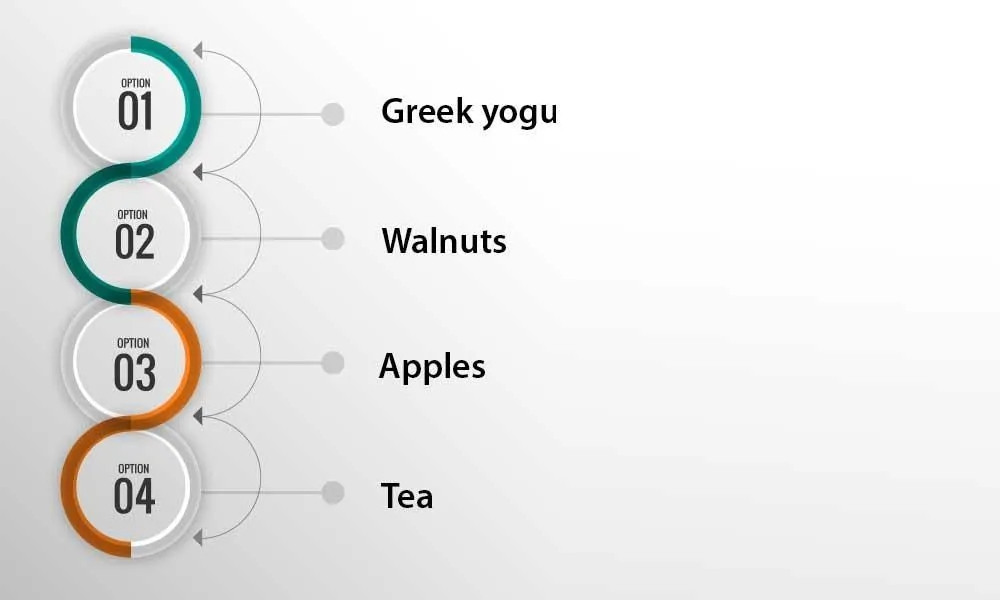Hypothyroidism refers to a serious medical ailment in which a person suffers from an underactive thyroid gland. This gland produces thyroid hormones (T4 and T3), and their deficiency directly affects metabolism and the digestive process. At times, it may even inhibit physical growth.
Hypothyroidism may also cause fluctuations in heart rate and body temperature, thus leading to issues with blood sugar levels. It is a serious medical condition and the patient should be referred to a healthcare expert promptly.
Mostly found in women over 60 years of age, hypothyroidism can be identified with the following symptoms:
1. Fatigue
2. Cold sensitivity
3. Unexplained weight gain
4. Slower physical growth
5. Lethargy
6. Constipation
7. Dry skin
8. High cholesterol
9. Weak kidneys
10. Uterine bleeding
11. Slow pulse or heart rate
12. Problems in speaking
13. Swollen face
14. Confusion
15. Pain in hands and ears
16. Issues with menstrual cycles
17. Pain in joints
18. Weaker immunity
Genetic and environmental factors could cause one’s thyroid gland to become underactive. However, the most common and widely acceptable for this disease is Hashimoto’s Thyroiditis.
The latter is an autoimmune disorder that causes your body’s red and white blood cells (or your immune system) to start attacking themselves. They start making antibodies against the thyroid gland, and all normal thyroid cells are rendered weakened or simply incapable. Such situations may arise post-pregnancy (in women) or after medical surgery.
A condition called secondary hypothyroidism can also sometimes happen in which your pituitary gland stops working. This gland offers indications to the thyroid gland to make thyroid hormones, and if this stops, then also the production of T4 and T3 hormones is affected. This affects our metabolism and immunity, and also has a direct impact on our physical growth.
The medical treatment of underactive thyroid glands will depend on the symptoms, the age of the patient, and his general health. It will also depend on how severe the condition is. However, it can only be treated with medications, and one might even need to take the medicines for quite a long time.
With regards to making dietary choices, it is not as straightforward with thyroid patients. If advised by a healthcare professional, they might get better results by eating frequently to control their appetite, improve their focus, and maintain or increase muscle mass.
It is difficult to generalize diet practices for anyone in the world, let alone a thyroid patient. Then there is also the difference in the spread and intensity of thyroid- viz., hypothyroidism (underactive) and hyperthyroidism (overactive). One may also need to take into account factors like genetics, dietary habits, previous illnesses and medications, and indulgent habits.
Here are some smart tips that one could follow to contain the spread of this malady:
Your body is deprived of energy while you sleep. When you wake up, you are recovering from a “fasting” state and have lesser energy. Therefore, your body will use its glycogen and muscle protein for energy and not fat to work. This is why you feel weaker if you start working out without eating anything.
Having a healthy and nutritious breakfast will make the body use fats as a source of energy and would help you start your day on a positive note. Remember to replenish yourself with nutritious foods after exercising, and do not consume junk foods and cola drinks.
Eating something nutritious every 2 to 3 hours of the day is easier than it sounds. Having frequent meals does not mean you have 4-6 large meals every day but it rather means that you should divide the three meals you normally have to 6. Another good idea is to plan your meals a week in advance.
For example, you can have oatmeal for breakfast, an apple, green smoothie, or carrots for a snack, a salad or sandwich for lunch, and some nuts or a shake for your next snack. It should be followed by dinner and then a final snack meal which can be a small snack or smoothie.
Please note that losing weight or eating small meals every two hours won’t exactly “cure” your thyroid issues. However, eating this way would catalyze the entire weight management process to help you feel better without worrying about your current body shape.
Here are some good foods that a thyroid patient should eat to satiate his or her hunger without gaining any unwanted weight:
Greek yogurt is packed with protein and contains probiotics that keep your gut healthy. Its flavor can be enhanced by adding some berries or sliced mango. The best way to prepare it at home is by fermenting milk with good-quality live bacteria cultures.
If you are doing it at home, you should make a mixture of the two and then strain it many times over. This is an important step to remove the whey and to provide the yogurt with a rich velvety texture. It would also make the yogurt creamier and delicious.
Walnuts are rich in Omega-3 fatty acids and antioxidants that help in weight loss and improve mood. You can keep a bag of walnuts with you in your bag, purse, or office drawer and have a handful when you’re hungry. Walnuts can be paired with a small piece of low-fat cheese, some oatmeal, or salad.
Tip: You can also like pistachios, almonds, cashews, peanuts, and hazelnuts in snacks.
You might have heard of the proverb that an apple a day keeps the doctor away. That’s the power of eating just one apple every day because it is a powerhouse of vitamins C and K, along with fiber and potassium. All of them are essential constituents of our physical and mental wellbeing.
This fruit also contains pectin and fiber, two nutrients that control your appetite. You can have this fruit in the morning with nut butter to get Omega-3 fatty acids in your bloodstream. This way you can count on it to strengthen your respiratory, digestive, nervous, and immune systems.
Green, black or white tea is a great snack and it can help you shed some flab. Rich in antioxidants, green and white tea improve metabolism and help you start your day with a cleaner digestive system. The lesser load you put on your thymus gland, the better results you may have with your thyroid.
We welcome you to explore this free resource to know how you can have better physical and mental health by just drinking two cups of green tea every day. We have listed 20 ways in which drinking green tea can change your life, starting today!
People suffering from thyroid often have irregular sleep patterns and weight distributions, and they should stick to restrictive diet plans. It would be always advisable to not stretch the thyroid gland so far that it starts malfunctioning at an uncontrollable rate. It has the responsibility of generating two hormones called T3 (triiodothyronine) and T4 (thyroxine).
The thymus gland helps in metabolism and produces calcium to control the reaction of the body towards illness, food consumption, stress, etc. If this gland is not working efficiently, the ultimate impact is on your weight.
Suggested article: Know Why You are Not Losing Weight? Weight Loss Myths Debunked!
Metabolism is that activity in your body that helps in controlling the energy you get from the food you eat. When you feed your body full of nutritious foods like fruits, vegetables, whole grains, beans, low-fat dairy, and lean protein, you are giving it the proper fuel it needs.
When you eat healthily, you are also helping to boost your metabolism and thus saving the thymus gland a lot of hard work. This can also help you the most with your medications and well-being.
Your metabolism rate is determined by the efficiency of your thyroid gland. Here are some natural metabolism boosters that can help your digestive system and thus take the load off your thyroid glands:
Go for a protein-heavy diet
Do HIITs, Pilates, and 7-Minute Workouts
Drink eight glasses of water every day
Eat more citrus fruits, they are rich in Vitamin C
Stand up more often and walk around
Don’t sit around all day
Drink Green Tea or Oolong Tea
Eat more spices and chilies
Practice portion control
Get eight hours of sleep every day
If you are overweight and suffering from thyroid diseases, losing weight becomes a challenge because one can’t actively engage oneself in physical activities. Some of the simplest ways and practices that you can adopt to lose weight are:
Brisk Walking
Swimming
Skipping ropes
Yoga
Aerobics
If you are overweight, losing weight is the perfect key to improve your thyroid and overall health. This is simply because when you are overweight, your thyroid levels have to work hard to maintain optimum metabolism levels. Weight loss reduces the pressure on your neck and the thyroid gland.
Consistency in weight and avoidance of junk and overeating also contributes towards improving the work efficiency of this organ. In some cases, losing weight may reduce your risk of developing a goiter if you are obese, pregnant, or have thyroiditis.
You may begin to reach for food when you’re stressed or bored. Sugar levels below 70 mg/dL (3.9 mmol/L) are considered low and unhealthy, while those below 54 mg/dL (3.0 mmol/L) might require immediate medical intervention.
When your blood sugar levels go down, the level of stress hormone cortisol picks up. This results in an increased craving for sugary and sweet foods, leading to increased belly fat, decreased immunity, and hormonal imbalances.
This can affect how you feel about your food and can cause a feeling of pleasure and sleepiness following a large meal. We advise you to adopt a lifestyle that respects and aids in controlled blood sugar levels.
We suggest you make these physical activities a part of your daily routine and lose weight to get rid of all your thyroid and metabolism-related problems. Consulting a qualified healthcare professional through a live online session would help you get the best medication for hypothyroidism.
It would also be best for a thyroid patient to consult a nutritionist or healthcare expert and get himself a personalized thyroid diet for weight loss or weight gain. He should also ask for home-based workouts from his gym trainer to maintain better fitness. The more a person stays fit, the lesser chances he has of falling ill.



